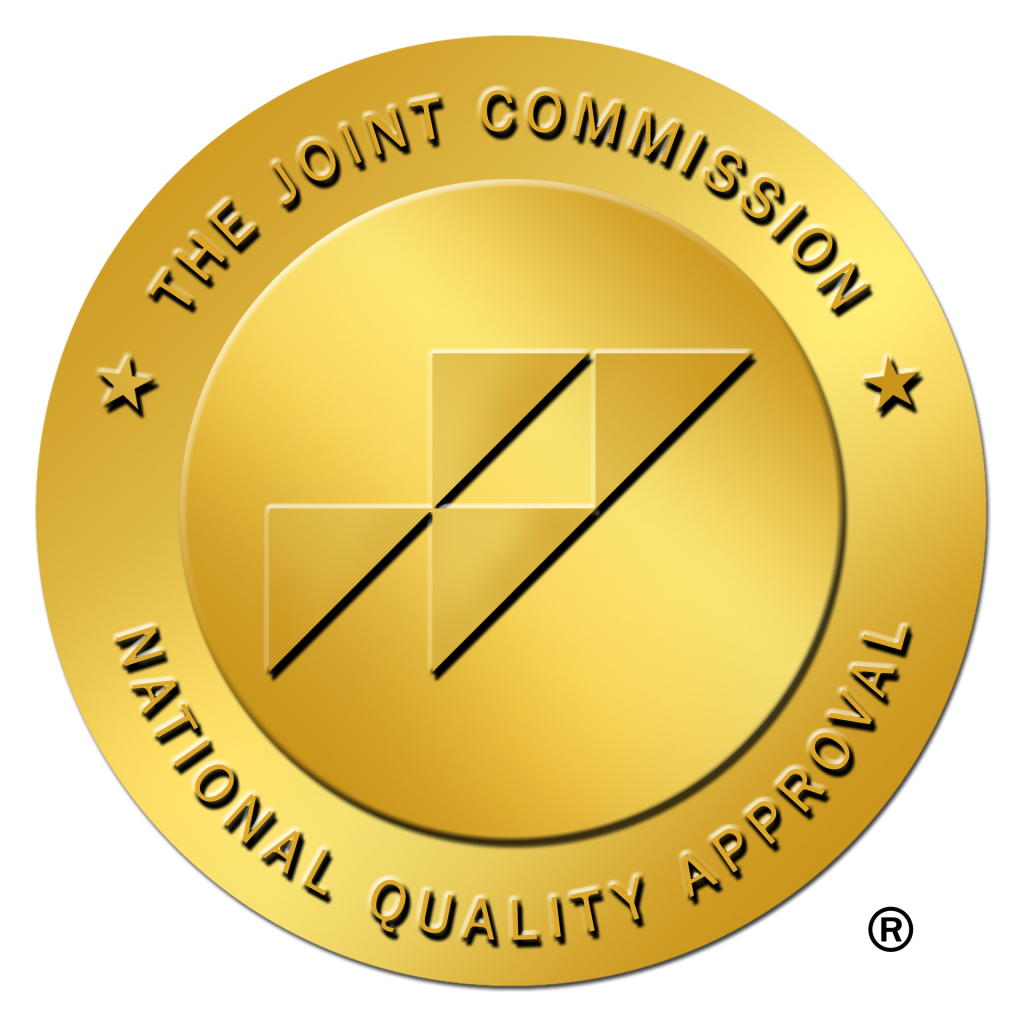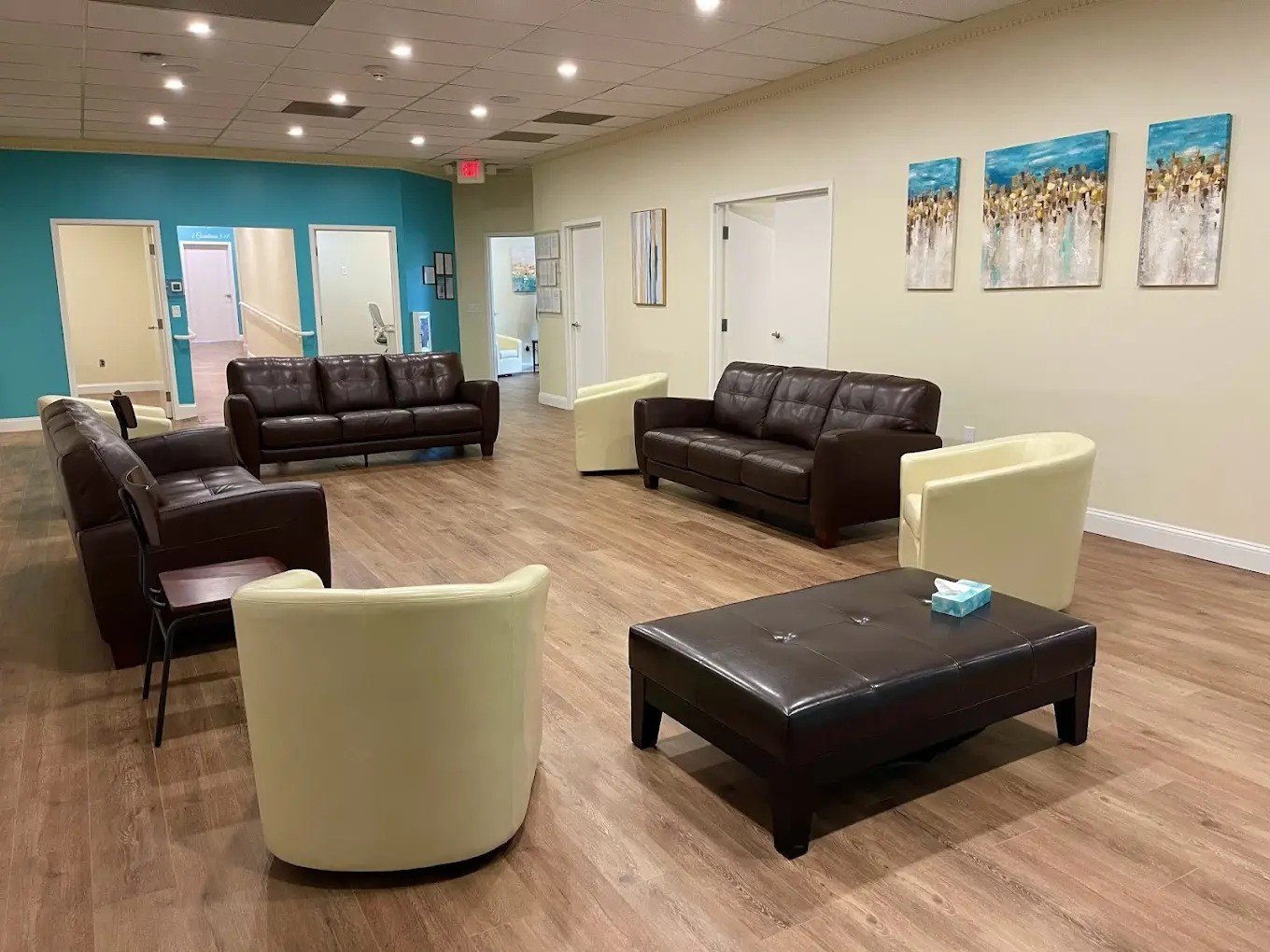Outpatient Addiction Counseling Nj
Holistic Approach to Healing
Recovery from addiction requires more than addressing the chemical dependency; it involves healing the mind, body, and spirit. At New Chapter Recovery, we have adopted a holistic approach that integrates various therapeutic modalities to nurture comprehensive well-being. This approach allows individuals to explore the underlying causes of addiction and encourages personal growth beyond recovery.
Our holistic philosophy incorporates proven methodologies such as Cognitive Behavioral Therapy (CBT), Dialectical Behavior Therapy (DBT), and Acceptance and Commitment Therapy (ACT). By leveraging these therapies, we foster a deeper exploration of emotions, thought patterns, and behaviors that empower our clients to regain control over their lives. The integration of experiential therapy and animal-assisted therapy further enhances our comprehensive treatment plans, creating an environment that promotes healing in all facets of life.
Exploring Outpatient Care Options
Outpatient addiction counseling nj offers flexibility that accommodates individuals’ unique circumstances. Our center in Parsippany-Troy Hills provides various levels of care, including the Partial Hospitalization Program (PHP), Intensive Outpatient Program (IOP), and standard Outpatient Program (OP). This structure enables clients to maintain work, school, or family commitments while receiving necessary treatment.
The PHP is ideal for those requiring a structured schedule but preferring to return home in the evenings. It’s a suitable bridge for individuals transitioning from residential rehab. Meanwhile, the IOP offers flexible sessions tailor-made for working professionals and students. The OP serves as a step-down care option, focusing on relapse prevention and maintaining sobriety over the long term.
Crafting Personalized Treatment Plans
A key aspect of outpatient addiction counseling nj is crafting personalized treatment plans. At New Chapter Recovery, we recognize that addiction is a unique journey for each client. Our multidisciplinary clinical team collaborates to develop individualized strategies that align with clients’ needs, goals, and personal situations.
We employ a dual diagnosis model that addresses co-occurring mental health conditions alongside addiction issues. This integrated approach ensures that clients receive comprehensive care, targeting both substance use disorders and any accompanying psychological concerns. With personalized goal-setting, clients are empowered to track their progress and celebrate their achievements, fostering a sense of ownership and motivation throughout their recovery.
Leveraging Group Therapy Sessions
Group therapy plays a pivotal role in outpatient addiction counseling nj, providing a supportive environment where individuals can share experiences and learn from one another. These sessions facilitate peer connections, reduce feelings of isolation, and promote positive behaviors through shared accountability.
At New Chapter Recovery, we offer specialty group therapy tracks that cater to diverse client needs. Our veterans’ treatment groups, for example, address unique challenges faced by military personnel, while faith-based recovery groups provide spiritual support tailored to individual beliefs. This variety allows clients to engage in sessions that resonate with their personal journeys, enriching their recovery experience.
Group therapy also fosters the development of essential skills, such as effective communication, empathy, and conflict resolution. These skills are crucial not only for sustaining recovery but also for enhancing interpersonal relationships beyond the treatment setting.
The Importance of Family Support in Recovery
Family involvement is a cornerstone of successful recovery from addiction. At New Chapter Recovery, we recognize the significant role that family dynamics play in both the development and resolution of addictive behaviors. Our family support services are designed to rebuild trust and improve communication among family members.
We encourage family participation in therapy sessions, providing them the opportunity to understand addiction and its impact on their loved one. This involvement not only aids in healing fractured relationships but also equips family members with the tools needed to support their loved one’s recovery journey. By fostering a supportive home environment, we help clients maintain the progress they’ve achieved in treatment.
The Role of Medication-Assisted Treatment
Medication-Assisted Treatment (MAT) is a crucial component of outpatient addiction counseling nj, particularly for individuals battling opioid or alcohol dependencies. At New Chapter Recovery, we incorporate MAT into our treatment plans to mitigate withdrawal symptoms and reduce cravings.
Our clinical team employs evidence-based medications such as buprenorphine and naltrexone, which are administered under close medical supervision. MAT is most effective when combined with counseling and behavioral therapies, creating a comprehensive treatment approach that addresses both the physical and psychological aspects of addiction. Our commitment to MAT ensures clients receive the medical support necessary for a stable and successful recovery.
Implementing Relapse Prevention Strategies
Relapse prevention is a vital focus area in outpatient addiction counseling nj. At New Chapter Recovery, we empower clients with the knowledge and strategies needed to recognize and manage triggers effectively. Our relapse prevention programs are built on a foundation of evidence-based practices and individualized care.
Through motivational interviewing and other therapeutic techniques, clients learn to identify high-risk situations and develop coping mechanisms. We emphasize the importance of creating a robust support network and practicing self-care as integral components of a sustainable recovery plan. Our objective is to equip clients with the tools necessary for long-term sobriety, enabling them to navigate life’s challenges while maintaining their recovery.
Tailoring Flexibility for Working Professionals
Balancing a career while attending treatment can be challenging, which is why flexibility is a key feature of outpatient addiction counseling nj. Our Parsippany-Troy Hills center offers adaptable scheduling options to accommodate the demands of professional life.
Our Intensive Outpatient Program (IOP) includes evening and weekend sessions, allowing clients to receive comprehensive treatment without compromising their work responsibilities. This flexibility ensures that working professionals can pursue recovery while maintaining their career obligations, creating a balanced approach that supports both personal and professional growth.
Dedicated Services for Veterans
New Chapter Recovery proudly offers specialized treatment services for veterans who have served our country. Our outpatient addiction counseling nj provides targeted support for veterans navigating the unique challenges posed by military life and post-service adjustment.
We honor the sacrifices of veterans by offering treatment programs that integrate trauma-informed care and address conditions like PTSD. Our center accepts VA and Tricare benefits, ensuring that veterans have access to the treatment they need without financial barriers. Through our veterans-focused groups and individualized care plans, we strive to support veterans in achieving a fulfilling and substance-free life.
Exploring Faith-Based Recovery Options
For clients seeking spiritual guidance as part of their recovery, New Chapter Recovery offers faith-based recovery tracks. These options integrate spiritual practices with traditional therapeutic approaches, providing a holistic path to sobriety.
Our faith-based programs encourage individuals to explore and deepen their spiritual beliefs, fostering a sense of purpose and connection. By combining spiritual insights with evidence-based therapies, clients receive comprehensive care that honors their faith and supports their recovery journey.
Engaging in faith-based recovery not only aids in personal growth but also strengthens clients’ resolve to overcome addiction. This approach nurtures a community of support and hope, empowering clients to rebuild their lives with a renewed sense of faith and determination.
How does New Chapter Recovery tailor treatment plans to suit individual needs?
At New Chapter Recovery, we believe that addiction is a deeply personal journey, meaning no two individuals will have the same treatment path. Our approach is highly collaborative, involving a multidisciplinary team that works together to create personalized treatment plans. This process begins with a comprehensive assessment to understand each client’s unique circumstances, including their substance use history, mental health conditions, and personal goals.
For example, one client may be struggling with both an opioid dependency and anxiety. In such cases, our dual diagnosis model comes into play, where we treat both conditions simultaneously. This ensures that clients receive holistic care that addresses all aspects of their well-being. Our use of evidence-based modalities like Cognitive Behavioral Therapy and Dialectical Behavior Therapy, along with innovative options like animal-assisted therapy, allows us to adapt to individual preferences and needs.
Consider reflecting on how personalized care might change your outlook on recovery and whether there are specific therapies you feel drawn to. Feel free to reach out with thoughts or queries!
What are some common misconceptions about outpatient care in the context of addiction treatment?
One of the most prevalent misconceptions about outpatient care is that it’s less effective than residential treatment. However, outpatient care at New Chapter Recovery is designed to offer a full continuum of evidence-based services that can be just as effective, particularly for individuals who need to maintain their daily responsibilities such as work or family commitments.
For instance, some believe outpatient care lacks structure. In reality, our Partial Hospitalization Program and Intensive Outpatient Program provide a robust framework with frequent sessions that ensure consistent support and treatment. The flexibility of outpatient care allows us to tailor schedules that integrate seamlessly into a client’s life, which can be crucial for maintaining long-term recovery.
It’s worth pondering: How does the opportunity for flexibility change your perception of addiction treatment and your ability to commit to a program? Share your thoughts in the comments below!
Why is family support emphasized so heavily in the recovery process?
Family support is a cornerstone of successful recovery because addiction affects not just the individual, but their entire support network. At New Chapter Recovery, we recognize that involving family can significantly enhance the healing process by rebuilding trust and improving communication.
For example, involving family members in therapy can provide them with a deeper understanding of addiction and its impacts. This knowledge empowers them to be more supportive, reducing the chances of enabling behaviors and increasing the effectiveness of the treatment. Moreover, a supportive family environment can reinforce the coping strategies learned in therapy, facilitating a smoother transition to life post-treatment.
Consider this: How might including your family in your recovery journey transform your healing process? We’d love to hear your insights or any questions you might have.
What makes group therapy a vital component in outpatient addiction counseling?
Group therapy is pivotal because it establishes a community of support that can be incredibly powerful in the recovery journey. At New Chapter Recovery, we offer diverse group therapy tracks, including specialized groups for veterans and faith-based recovery, ensuring that clients can find sessions that resonate with their personal journey.
During group sessions, individuals share their experiences and learn from others, creating an environment of empathy and understanding. This sharing helps reduce feelings of isolation and fosters accountability as participants often find motivation and encouragement from their peers. Additionally, group therapy equips individuals with essential skills like communication and conflict resolution, which are invaluable both during and after the recovery process.
Think about how hearing others’ stories might impact your own journey. Does this approach resonate with you? I’d be interested to know your thoughts!
How does outpatient care accommodate working professionals seeking treatment?
Balancing recovery with a professional life can be challenging, but at New Chapter Recovery, we prioritize flexibility to ensure that professional responsibilities do not hinder one’s recovery journey. Our Intensive Outpatient Program is tailored for working professionals, offering evening and weekend sessions that allow individuals to engage fully with treatment without compromising their career obligations.
This flexible scheduling means you can attend necessary sessions while maintaining your job, which can alleviate a lot of the stress and fear associated with taking time off work. Moreover, this balance is crucial for creating a sustainable path to recovery, as it allows individuals to integrate the coping skills and strategies they learn in therapy directly into their everyday lives.
How might this flexibility change your perspective on pursuing treatment while maintaining employment? Feel free to share your thoughts or any questions you have.
What role does Medication-Assisted Treatment (MAT) play in tackling opioid or alcohol addiction?
Medication-Assisted Treatment is a critical component of our approach at New Chapter Recovery, especially for clients battling opioid or alcohol dependencies. MAT involves the use of FDA-approved medications like buprenorphine or naltrexone to ease withdrawal symptoms and curb cravings, which makes the recovery process more manageable and effective.
But MAT is not just about medication. It is most effective when combined with counseling and behavioral therapies. By addressing both physical and psychological aspects of addiction, MAT supports the development of new coping mechanisms and relieves some of the immediate challenges of withdrawal, allowing individuals to focus on healing and personal growth.
Reflect on the potential benefits that such a comprehensive approach might have on long-term recovery. Does the combination of medication and therapy offer new insights into how addiction treatment could work for you or someone you know? Your reflections could help others considering their options.
Resources
- Substance Abuse and Mental Health Services Administration (SAMHSA) – SAMHSA is the leading agency in the U.S. working to reduce the impact of substance abuse and mental illness on America’s communities.
- National Alliance on Mental Illness (NAMI) – NAMI is the largest grassroots mental health organization dedicated to building better lives for the millions of Americans affected by mental illness.
- American Psychiatric Association (APA) – The APA is the leading psychiatric organization in the world, advocating for the profession and patients with mental illness.
- National Institute on Drug Abuse (NIDA) – NIDA is a government agency focused on leading the nation in bringing the power of science to bear on drug abuse and addiction.
- Centers for Disease Control and Prevention (CDC) – The CDC is a national public health institute in the United States that works to protect public health and safety through the control and prevention of disease, injury, and disability.






